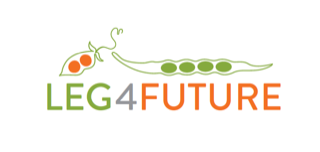High-quality protein concentrates through holistic utilization of mung beans and lentils


Gentle raw material processing increases protein quality
In the Leg4Future project, we are working with the Technical University Munich TUM (School of Life Sciences, Plant Proteins and Nutrition), the University of Bonn and the sine Institute to develop an innovative concept for the sustainable use of mung beans and lentils. The aim is to obtain technofunctional protein concentrates with excellent sensory and physico-chemical properties while minimizing content of antinutritive substances. The latter not only affect the nutritional quality, but also the flavor and color of the protein concentrates.
The project relies on gentle processes such as the selective removal of antinutritive ingredients by dry fractionation in combination with extractive and fermentative processes. At the same time, special attention is paid to the economic and ecological utilization of by-products. The result is a holistic approach that integrates the entire value chain and enables the use of these protein sources in a wide variety of foods.
Lentils and mung beans for a more biodiverse agriculture
Peas, field beans, soybeans and lupins currently dominate the cultivation of legumes in Germany. However, in order to promote versatile, biodiverse agriculture, it is necessary to go beyond these well-researched raw materials and promote the cultivation of less established but promising crops. The Leg4Future project therefore focuses on lentils and mung beans. Lentils are already cultivated in Germany and are characterized by their good sensory properties. The mung bean, on the other hand, which is not yet cultivated here, is one of the most important legumes in the world. Thanks to its good physico-chemical properties and its novel food status recently confirmed by the EFSA, the mung bean has great potential for innovative food applications.
Fermentative processes for depleting antinutritive substances
A central aspect of the project is the development of fermentative processes for the depletion of antinutritive substances. The Fraunhofer IVV is contributing its extensive expertise to optimally adapt the process to the properties of mung beans and lentils and is supporting the process development through to upscaling in its in-house food pilot plant.
The project makes a significant contribution to strengthening sustainable, biodiverse agriculture and developing new, ecologically and economically promising protein sources. The project is accompanied by targeted communication measures and consumer acceptance studies to promote a healthy diet with legumes in Germany and to ensure broad acceptance of the developed products.
Project term: |
2024 to 2027 |
Project management / project funding: |
Federal Ministry of Food and Agriculture (BMLEH), Federal Office for Agriculture and Food (BLE) |
Funding program: |
Protein plant strategy of the BMLEH: Funding of research- and development projects for the characterization and use of alternative protein sources in human nutrition |
Project partner: |
|
 Fraunhofer Institute for Process Engineering and Packaging IVV
Fraunhofer Institute for Process Engineering and Packaging IVV